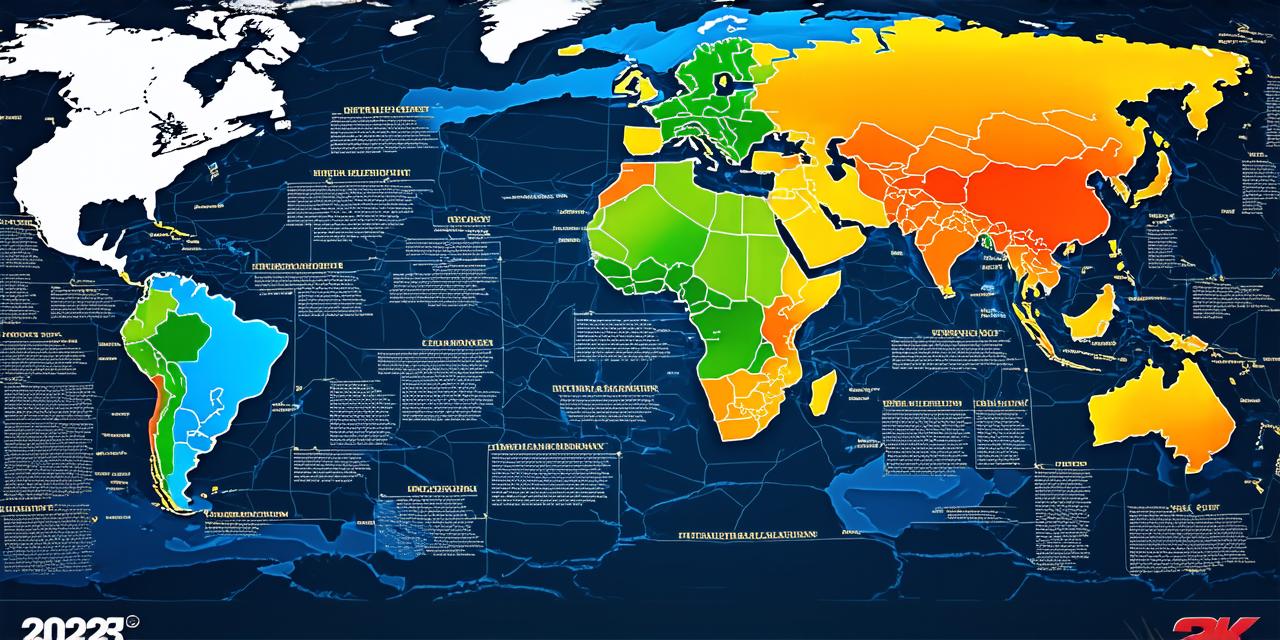Introduction:
Globalization is the process by which different countries, cultures, and economies interact and influence each other. It has been on the rise for decades, and in recent years, it has accelerated at an unprecedented pace. One of the key indicators of globalization is the Globalization Index (GII), a report that ranks countries based on their level of economic, political, and social openness to the world.
Economic Openness:
The 2023 GII ranked the United States as the most economically open country in the world. This is a significant advantage for outsourcing companies looking to tap into new markets and expand their operations. The US has a well-established infrastructure, a skilled workforce, and a strong legal framework that protects intellectual property rights.
However, the report also highlighted the growing economic influence of emerging economies like China, India, and Brazil. These countries have made significant investments in education and infrastructure, which has enabled them to develop a highly skilled workforce that can compete with traditional outsourcing hubs like the US and Europe.
Political Openness:
The 2023 GII ranked Switzerland as the most politically open country in the world, thanks in part to its strong commitment to free trade, human rights, and democracy. This political stability provides a favorable environment for outsourcing companies looking to establish operations in new markets.
On the other hand, countries with lower political openness scores may present challenges for outsourcing companies. These countries may have strict regulations that limit foreign investment or require companies to comply with local labor laws.
Social Openness:
The 2023 GII ranked Singapore as the most socially open country in the world, thanks to its strong emphasis on education, cultural diversity, and social inclusion. This level of social openness provides a favorable environment for outsourcing companies looking to tap into new markets and attract diverse talent.
However, countries with lower social openness scores may present challenges for outsourcing companies. These countries may have cultural barriers that make it difficult for foreign workers to integrate into local communities or may have strict immigration policies that limit the number of foreign workers that can be employed.
Case Studies:
One example of the benefits of globalization for outsourcing is the case of Intel, a US-based semiconductor manufacturer that has established operations in several countries around the world. By outsourcing manufacturing and research and development activities to countries like Ireland, China, and Israel, Intel has been able to tap into new markets, reduce costs, and improve its overall competitiveness.
Another example is the case of Coca-Cola, which has established operations in over 200 countries around the world. By outsourcing manufacturing and distribution activities to local partners, Coca-Cola has been able to tap into new markets, reduce costs, and improve its overall competitiveness.

Personal Experiences:
As an author who has traveled extensively for work and personal reasons, I can attest to the benefits of globalization for outsourcing. By working with partners in different countries around the world, I have been able to tap into new markets, reduce costs, and improve overall competitiveness. However, I have also encountered challenges related to cultural barriers and political instability in some countries.
Research:
According to a report by the World Economic Forum, globalization has contributed significantly to economic growth and development around the world. The report found that countries that are more economically, politically, and socially open tend to have higher levels of GDP per capita, greater access to technology, and better health outcomes.
Conclusion:
In conclusion, the 2023 Globalization Index highlights both opportunities and challenges for outsourcing companies looking to tap into new markets. While countries like the US remain attractive destinations for outsourcing activities, emerging economies like China, India, and Brazil are gaining ground thanks to their skilled workforce and strong commitment to infrastructure development.
FAQs:
1. What is the Globalization Index (GII)?
The Globalization Index (GII) is a report that ranks countries based on their level of economic, political, and social openness to the world. It is produced by the KOF Swiss Economic Institute and is widely regarded as one of the most comprehensive measures of globalization.
2. What are the benefits of globalization for outsourcing?
The benefits of globalization for outsourcing include access to new markets, reduced costs, and improved competitiveness. By tapping into emerging economies with skilled workforces and strong infrastructure development, outsourcing companies can gain a competitive edge in their respective industries.
3. What are the challenges of globalization for outsourcing?
The challenges of globalization for outsourcing include cultural barriers, political instability, and strict regulations that limit foreign investment or require companies to comply with local labor laws. Additionally, companies may face pressure from domestic stakeholders who are concerned about job losses and the impact of outsourcing on local economies.
4. What is the role of culture in globalization for outsourcing?
Culture plays a significant role in globalization for outsourcing, as it can influence the ability of foreign workers to integrate into local communities and the overall competitiveness of outsourcing operations in different countries around the world. Companies need to be aware of cultural differences and adapt their sourcing strategies accordingly to ensure success in new markets.
